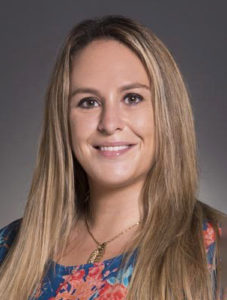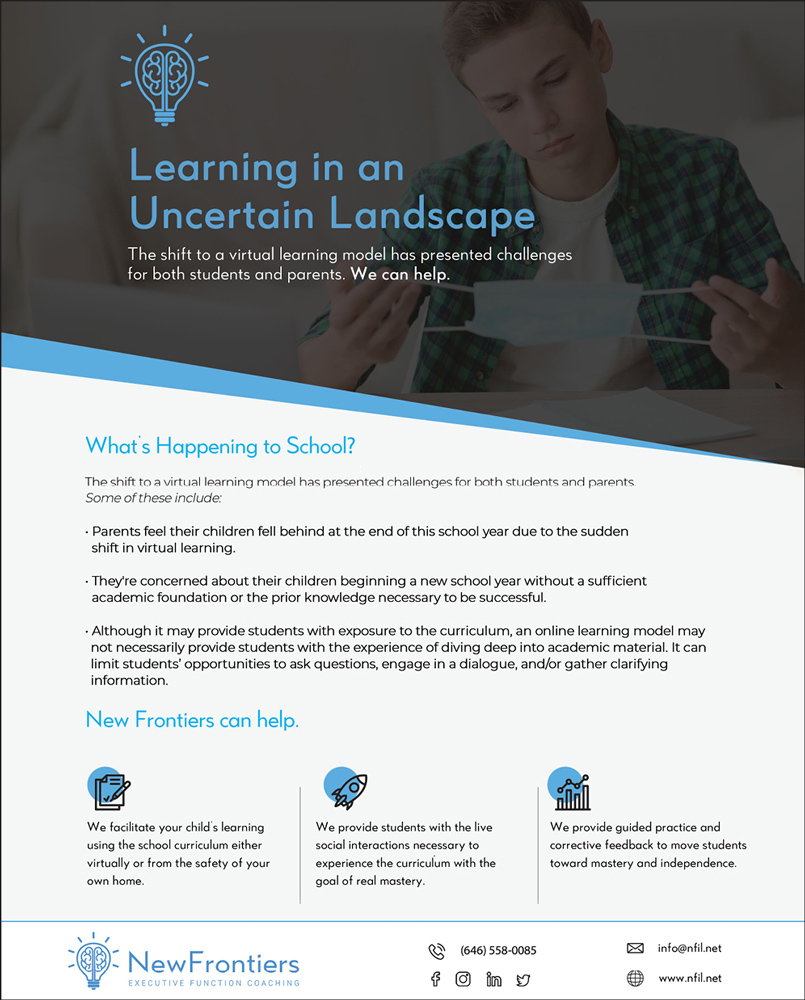Various research studies have shown that early intervention for children with autism spectrum disorders (ASD) is important for providing the tools and strategies needed for long term success in areas such as education, career, and life in general (McEachin, Smith, & Lovaas, 1993). It is important to note that most attention up to this point has been given to the effectiveness of treatments directed solely towards the individuals diagnosed with ASD specifically. However, understanding the complexity of ASD and its implications on the family unit, it is just as important to call attention towards interventions that support the family and its functioning as a whole (Estes, Swain, & MacDuffie, 2019).

Samantha Curiale-Feinman, MSEd, TSHH

Sheila Simchon, LSP, LCSW
Living with an individual diagnosed with autism can require that one readjusts their expectations of the family unit, both in terms of general day-to-day activities, as well as special events and occasions. Families raising an individual with ASD can sometimes find themselves isolated from others, feeling overwhelmed and/or tired, exhibiting high levels of stress, or feeling a sense of worry or embarrassment by how others may perceive their child’s behavior in a social setting (Begum & Mamin, 2019). Supporting the child’s development of social and communication skills, finding support to get any challenging behaviors exhibited under control, AND providing support for caregivers and siblings has the potential to make life run more smoothly for everyone in the family. Through open interviews from various parents, caregivers, siblings and professionals, we have collected the following recommendations on best practices on how to help the family unit as a whole flourish.
Appreciating Neurodiversity
Families have identified that, first and foremost, in order to set the stage for a healthy family dynamic, there should be a focus on creating and celebrating a neurodiverse household. Letting go of assumptions of how people “should” be, focusing on strengths, setting realistic expectations, and honoring the differences that each family member brings to the table are all key factors necessary for practicing gratitude of the family unit as a whole. It is also important to identify each family member’s needs and learn the language of how they communicate when their environment or experience is too overwhelming, whether they be the individual diagnosed with ASD or one of their loved ones. This can help the whole family unit communicate more effectively and be more prepared to de-escalate frustrating and stressful situations.
Supporting Learning Opportunities
Caregivers and siblings note that it is important to provide explicit social skills support and practice to their loved ones with autism, as well as behavioral therapy to decrease maladaptive behaviors and encourage more positive and productive ones. This can help individuals with ASD to learn the social norms in various social situations, thus making it easier to participate in gatherings and events as a whole family. On the other hand, it is just as important to provide education to the family as a whole. Education is key and each and every family member should be invited and involved in the learning process. Learning about topics such as self-stimulatory behaviors, sensory differences, the root of maladaptive behaviors, and comorbidity considerations can be essential to success and should be looked at as an integrative family process. Having a solid foundational knowledge of autism and how to effectively encourage learning creates opportunities for the whole family to develop and understand the importance of structure and routine to encourage success. Knowledge truly is power for families affected by ASD.
Access Resources
There are many reputable resources available to provide various levels of support to families. Seek out both individual supports and support groups as appropriate. Individual support is appropriate when the individual with ASD or family member can benefit from self-exploration, the development of self-awareness and one’s own boundaries, and personal issues surrounding a diagnosis, treatment, or the processing of such. There are also support groups for individuals diagnosed with ASD specifically, or groups for their parents and/or siblings that can also benefit the family as a whole. Support groups can assist in validating the issues being faced by the family, while allowing for a venue to brainstorm solutions with others that can understand and relate to your point of view. Research groups in your community that provide these types of supports and encourage participation of family members. It can assist in developing a better understanding of the diagnosis and open one up to what other types of resources and services are available. Support groups help to provide a sense of unity to families that many times feel like they are alone in the process.
Further, family members should be encouraged to ask for help directly when they need it. You can request advice from trusted sources, including professionals in the field, such as your pediatrician or therapist, or those that are part of your family or friends circle.
Practice Family Mindfulness and Well-Being
As a family, do not be too hard on yourselves or each other. Remember you might have moments of sadness when things do not go the way that you expected them to go. Remind each other that this is okay and that you are a team working together, not against each other. In times of distress, self-care can be very powerful, and it is important to remind each other of the importance of taking care of your own personal health and the health of each other. Plan and participate in structured family wellness activities, such as yoga class, art or music therapy, outdoor exercise, meditation, cooking activity, or other therapeutic and/or recreational activities. Such activities not only continue the development of social communication skills in an organic context, but also allow for the family to work as a team and enjoy time together.
All families face challenges in some capacity, and families living with an individual with autism may at times feel overwhelmed by the challenges they are facing. Always remembering that all families struggle at times can provide some peace of mind. Reframing back to why family is important – love, support, traditions and values – can reframe the experience. Remembering that family members are there to learn from each other, help one another and be there for each other through the good and difficult times can remind us what an incredible influence we can be for one another.
Sheila Simchon, LSP, LCSW, Coordinator and Samantha Curiale-Feinman, MSEd, TSHH, Director, New Frontiers Executive Function Coaching, can be reached at info@nfil.net or (646) 558-0085.
References
Begum, R., & Mamin, F.A. (2019). Impact of autism spectrum disorder on family. Autism Open Access 9: 244. doi: 10.35248/2165-7890.19.09.244.
Estes, A., Swain, D., & MacDuffie, K. (2019). The effects of early autism intervention on parents and family adaptive functioning. Pediatric Medicine, 2. doi:10.21037/pm.2019.05.05
McEachin, J. J., Smith, T., & Lovaas, O. I. (1993). Long-term outcome for children with autism who received early intensive behavioral treatment. American Journal of Mental Retardation: AJMR, 97(4), 359–391.





